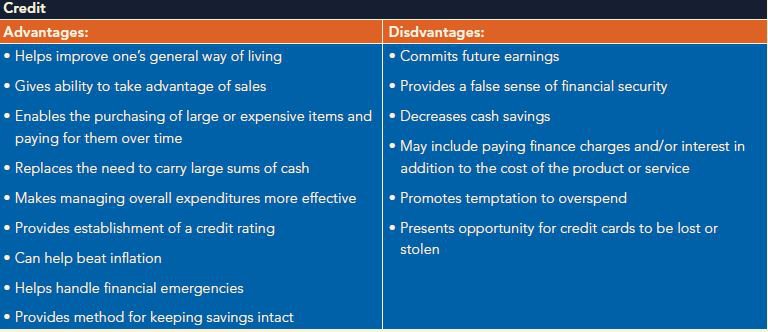Cheyenne Federal Credit Union: Outstanding Financial Solutions for You
Cheyenne Federal Credit Union: Outstanding Financial Solutions for You
Blog Article
Sign Up With the Movement: Why Federal Credit Scores Unions Issue
In the world of economic organizations, Federal Debt Unions stand apart as pillars of community-focused banking, but their relevance extends past typical banking services. They represent a standard change towards member-driven financial remedies that focus on inclusivity and common development. As we decipher the layers of their influence on individuals and neighborhoods alike, it comes to be obvious that Federal Cooperative credit union hold the key to a more equitable and flourishing monetary landscape. Join us as we explore the detailed tapestry of reasons that Federal Credit report Unions matter, and uncover exactly how they are forming the future of economic empowerment.
Background of Federal Credit History Unions
Considering that their beginning, Federal Lending institution have played a crucial function in the monetary landscape of the USA. When the Federal Credit Scores Union Act was signed into law by Head of state Franklin D. Roosevelt in 1934, the history of Federal Credit history Unions dates back to the very early 20th century. This Act was a response to the Great Anxiety, aiming to advertise thriftiness and prevent usury by providing economical debt to participants.
The Act enabled groups of people with a typical bond, such as workers of the exact same business or participants of an organized labor, to form credit unions. These cooperative credit union were established as not-for-profit economic cooperatives, possessed and run by their participants. The participating structure made it possible for people to pool their resources and provide access to inexpensive financings and other monetary solutions that may not have actually been readily available to them with conventional banks.
For many years, Federal Credit history Unions have actually proceeded to expand in number and impact, serving millions of Americans nationwide. They have actually remained committed to their founding concepts of community emphasis, participant possession, and financial addition.
One-of-a-kind Services Supplied by Lending Institution

Furthermore, cooperative credit union frequently use lower rate of interest on loans and bank card compared to larger financial institutions. This can cause considerable cost financial savings for members, especially for those looking for to borrow cash for huge purchases such as homes or automobiles. In addition, lending institution often provide higher rate of interest on financial savings accounts, allowing participants to expand their money extra efficiently.
An additional distinct solution supplied by lending institution is profit-sharing. As not-for-profit companies, credit unions disperse their incomes back to members in the form of returns or minimized charges. This cooperative structure promotes a sense of common possession and neighborhood amongst participants, reinforcing the idea that lending institution exist to offer their participants' benefits.
Advantages of Subscription in Debt Unions
Joining a cooperative credit union provides members a host of concrete benefits that originate from the institution's member-focused technique to financial solutions. Unlike traditional banks, credit history unions are not-for-profit organizations possessed and run by their participants. This one-of-a-kind structure allows cooperative credit union to focus on the finest rate of interests of their participants most of all else, causing a number of advantages for those who pick to sign up with.

Community Effect of Credit History Unions
Lending institution play a crucial duty in fostering economic stability and growth within regional communities with their one-of-a-kind financial solutions version. Unlike conventional financial institutions, cooperative credit union are member-owned and operated, enabling them to focus try this web-site on offering the most effective passions of their members instead of creating revenues for shareholders. This member-centric technique translates right into tangible benefits for the neighborhood at large.
One substantial way credit scores unions impact areas is by supplying access to affordable economic items and services. Wyoming Federal Credit Union. From low-interest finances to competitive savings accounts, lending institution offer a vast array of choices that assist people and little businesses grow. By reinvesting their revenues back right into the area in the type of reduced costs, higher rate of interest on deposits, and better loan terms, lending institution add to the general monetary wellness of their participants
Additionally, cooperative credit union usually focus on financial education and learning and outreach initiatives, furnishing neighborhood participants with the understanding and sources needed to make audio monetary choices. By providing economic literacy programs, workshops, and one-on-one counseling, debt unions equip people to accomplish higher financial freedom and security. Generally, the area influence of credit scores unions surpasses simply banking solutions; it includes building more powerful, more resistant neighborhoods.
Future Growth and Trends in Lending Institution
In the middle of progressing financial landscapes and changing customer preferences, the trajectory of cooperative credit union is poised for dynamic adjustment and development. Technology will play a critical role fit the future growth of credit history unions. As even more purchases transfer to electronic systems, cooperative credit union are improving their on the internet services to satisfy participant expectations for benefit and effectiveness. Embracing fintech cooperations and investing in sophisticated cybersecurity procedures will certainly be critical for cooperative credit union to remain competitive and secure in the electronic age.
Moreover, sustainability and social obligation are becoming key patterns influencing the development of credit history unions. Members are significantly seeking banks that straighten with their worths, driving lending institution to incorporate social and environmental initiatives right into their operations (Cheyenne Federal Credit Union). By focusing on sustainability techniques and community advancement jobs, cooperative credit union can draw in and maintain participants who focus on ethical banking techniques

Verdict
In conclusion, federal credit scores unions play an important function in advertising financial stability, directory area empowerment, and inclusivity. Via their unique services, member possession framework, and commitment to reinvesting in the area, debt unions prioritize the wellness of their members and add to developing stronger areas. As they remain to expand and adapt to altering fads, cooperative credit union will remain an essential pressure in progressing financial independence for all individuals.
The history of Federal Credit history Unions dates back to the very early 20th century when the Federal Credit Scores Union Act was authorized into law by Head of state Franklin D. Roosevelt in 1934.The Act permitted teams of people with a common bond, such as staff members of the very same business or members of a labor union, to create credit rating unions.Furthermore, credit unions often use reduced passion rates on fundings and credit report cards compared to bigger economic institutions.Additionally, credit history unions commonly prioritize financial education and learning and outreach campaigns, furnishing community participants with the expertise and sources needed to make sound monetary choices. With their distinct services, participant possession framework, and commitment to reinvesting in the community, credit history unions focus on the well-being of their members and contribute to building more powerful communities.
Report this page